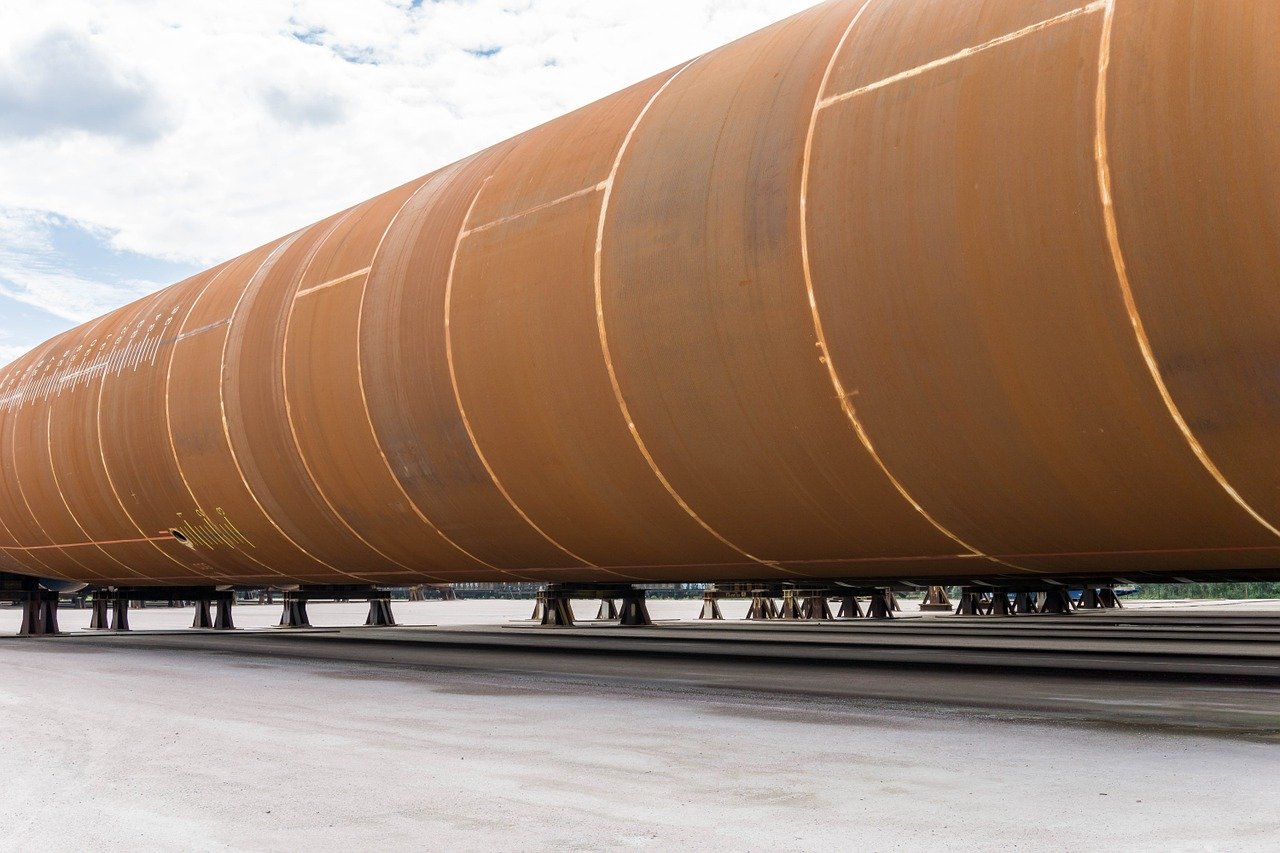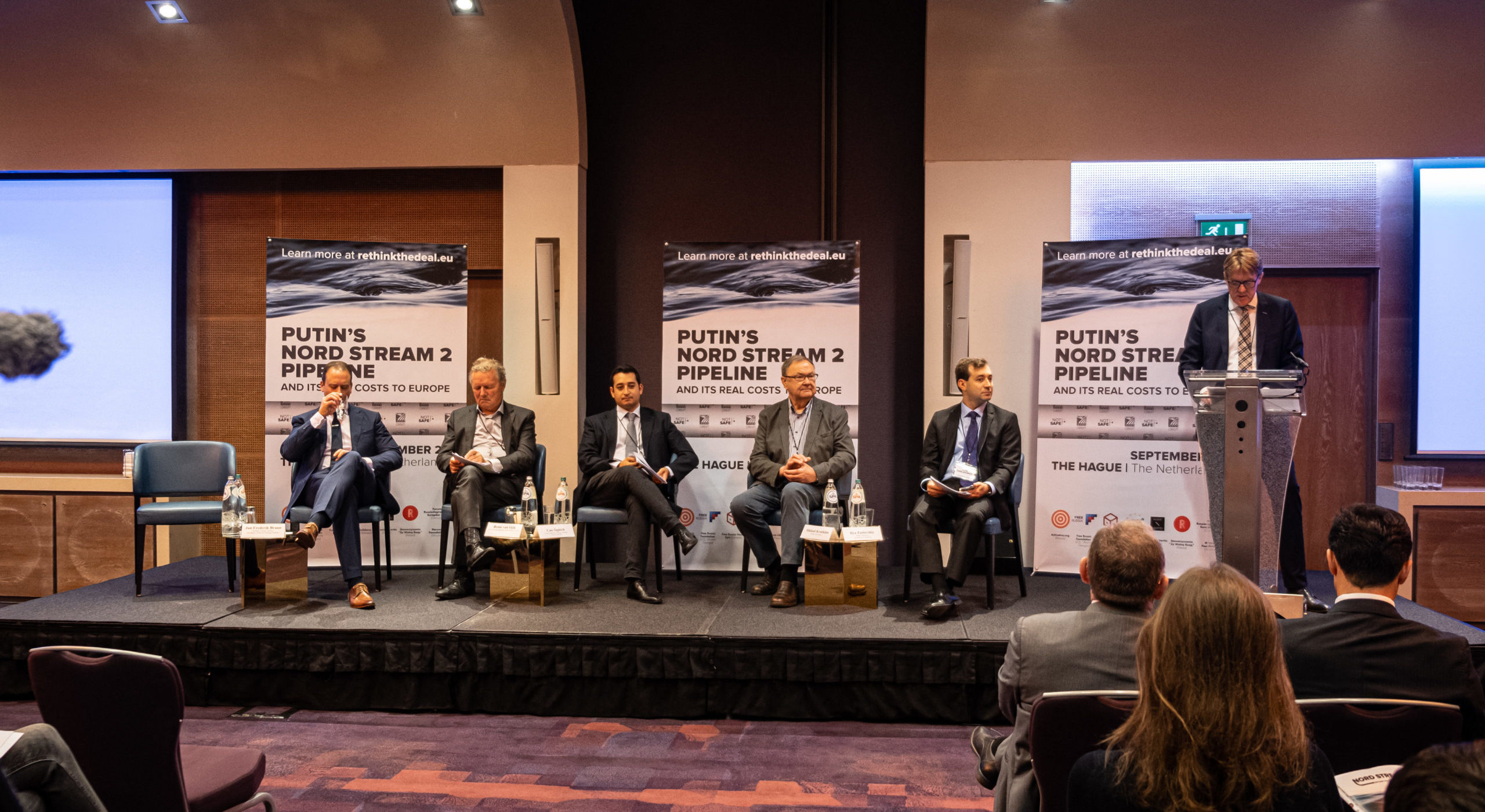Who Is Behind the Renewed Effort to Push Nord Stream 2 on Europe?
By Ivan Vasilyev April 09, 2020

By Ivan Vasilyev April 09, 2020

The PR Campaign:
April 2020 has witnessed a conspicuous uptick of publications in Western and Russian media in support of the Nord Stream 2 project:
All of these publications reference the release of results of an opinion poll and in English.
Who Paid for the PR Campaign?
The poll was commissioned by the German Eastern Business Association (Ostausschuss – Osteuropaverein der Deutschen Wirtschaft, OAOEV)
OAOEV is a fairly new NGO that promotes German business in “Eastern” countries – from Russian to China. It was founded in 2018 through the partnership of the German Committee on Eastern European Economic Relations (Eastern Committee) and the Eastern Europe Business Association of Germany.
In December 2019, several OAOEV members met with Vladimir Putin. Following the meeting, OAOEV published a press release.
The press contact for the Nord Strom 2 Survey listed on the OAOEV website is Andreas Metz. Metz is described by Politico Europe as “member of Berlin-based lobbying group Committee on Eastern European Economic Relations, which supports the pipeline Nord Stream 2.”
This OAOEV survey coincided with the November 1, 2019 appointment of Mario Mehren as the new spokesperson of its Russia working group. Mehren is a member of the shareholders committee of Nord Stream 2.
Mr. Mehren is also the Chairman and CEO of the natural gas and crude oil company Wintershall Dea – one of the two German companies involved in the Nord Stream 2 project (the second is E.On). It is a joint venture of a German concern BASF (67%) and LetterOne (33%) co-owned by Russian oligarchs with strong ties to the Kremlin, – Mikhail Fridman, Petr Aven and German Khan.
There is overwhelming evidence suggesting that these oligarchs have close ties with the Putin’s regime and its intelligence services.
Wintershall Dea owns stakes of gas reserves in Russia and chemical factories in Germany that rely on the export of that gas.
In this role as the head of Wintershall Dea, Mario Mehren met with the CEO of Gazprom Alexei Miller numerous times:
Mr. Mehren has been on the record lobbying for Nord Stream 2 for a few years now. For example, he is a co-author of a 2018 disinformation piece about Nord Stream 2 in a US outlet.
Given the above connections of the oligarchs to the Kremlin and conflicted interests of the Wintershall Dea shareholders and top leadership, it is reasonable not to be believe in the independent nature or objectivity of this research poll.
Who Executed the Polls?
The Nord Stream 2 survey was executed by an infamous commercial polling agency Forsa Politik- und Sozialforschung AG, which had been accused of data manipulations in several of its past projects. In 2009, for example, the firm was involved in a scandal concerning a methodologically flawed survey whose cooked results claimed disapproval of the 2007 railroad operators’ strike and approval of privatization of the railway. It was uncovered that the biased study had been secretly funded by Deutsche Bahn.
Survey Claims:
Forsa’s Nord Stream 2 poll is based on a phone interview of 1,006 Germans and purports them to reflect the attitudes of the entire German population.
While neither the full Nord Stream 2 survey data nor its methodology have been made public, the Wintershall Dea website features the most extensive write-up of the Forsa Nord Stream 2 survey.
The Wintershall Dea website highlights the interpretation of data according to which the majority of German people do not see the U.S. as a reliable partner and juxtapose it to Putin’s Russia. Its title is “Forsa: less and less confidence in the U.S.”
The survey’s other published findings also reinforce the anti-US and pro-Russian narrative through claims such as:
What Are the Prospects for Nord Stream 2?
With just a hundred miles of seabed pipeline construction remaining, the work on the Nord Stream 2 project was abruptly halted by US sanctions introduced in December 2019. The sanctions threaten to blacklist any foreign companies collaborating on the construction of the pipeline. This caused all foreign partners to pull-out from the construction and left Russia with no foreign vessels willing to complete the pipe-laying, according to analysis by Benjamin L. Schmitt published by the Jamestown Foundation.
Neither the sanctions, the Coronavirus Pandemic nor the perturbations on the global energy market seem to have any affect, as Putin vowed to finish the pipeline no later than the first quarter of 2021. Such a timeline, however, seems overly optimistic, for two reasons.
Firstly, Russia needs to receive a permit from Denmark to deploy in its territorial waters. Such a permit (given Denmark’s appreciation for the true nature and purpose of Nord Stream 2) is far from certain, and even if granted, may be issued with a significant delay. The Danish Energy Agency (DEA) had spent two and a half years evaluating Gazprom proposals before finally granting permission to build the pipeline in its waters in October 2019.
In February 2020, the Danish Energy Agency said it began negotiations with Nord Stream 2 AG regarding the unfinished Nord Stream 2 gas pipeline, but the involvement of any specific new vessels has not yet been discussed.
Secondly, Russia currently has no vessels equipped to carry on the construction. According to a European energy expert and Jamestown Foundation Senior Fellow Margarita Assenova, Russia has two ships it may potentially use to complete the project: Akademik Chersky and Fortuna.
Akademik Chersky, a vessel owned by a Moscow-based construction firm with a loan from Gazprombank, set sail from Russia’s Far East toward the Suez Port in Egypt in March 2020 and after several peculiar route diversions headed to Las Palmas in early April. It possesses dynamic positioning stipulated by Danish authorities. Chersky, however, requires a technology upgrade to be able to lay pipes. An upgrade can potentially be performed in two to three months. It would then take additional time for Akademik Chersky to reach the Baltic, said Assenova.
Fortuna, located in the Baltic Sea, does not have dynamic positioning. As explained by a CEPA report, “dynamic positioning is a computer-controlled system that automatically maintains the vessel’s position and heading, without the need to use anchors to maintain its course in deep waters. Avoiding anchors in the Baltic Sea is a key environmental and security requirement of Danish authorities for drilling platforms, research ships, and cable-laying and pipe-laying vessels.” Gazprom has floated an idea of attaching a tugboat with dynamic positioning to Fortuna, as reported in the Russian media.
Even if either of these schemes is successful, the vessels would still have to be insured, and its insurers would fall under the US sanctions. Russia has been developing its own instruments for insuring vessels under the new sanctions regime, according to Mikhail Korchemkin from East European Gas Analysis group.
What are the Objectives of this PR Campaign?
With its publicity campaign, Wintershall Dea has attempted to improve the political and social dynamics in Europe to facilitate the quickest completion of the Nord Stream 2 pipeline so badly wanted by the Kremlin.
While revenues from gas exports are not essential for the Russian federal budget, the sector has become the primary instrument of expropriating state resources and channeling them into the accounts of Putin’s’ cronies. As such it is one of the key factors to the ability of Putin to remain in power.
Putin’s regime simply cannot afford to lose its market share to a highly competitive US LNG. Gas price manipulation has proved an effective strategy for Gazprom in the past decade. By completing Nord Stream 2, Gazprom is hoping to brainwash European consumers in its ability to sustain high volumes of affordable gas supply for the long term while in reality Russian gas has always come with the political strings attached, bringing corruption and subversion of democratic institutions.
With this PR campaign, the Kremlin attempts to shift the focus away from its track-record of price manipulation and to the commercial aspects of this partnership with the EU, as well as convince the society that the Nord Stream 2 is a purely commercial project and not a political weapon of the Kremlin.
By Vladimir Zhbankov
January 03, 2020
 Article
Article
By Jelger Groeneveld
December 19, 2019
 Article
Article
By Richard Hoogland
December 19, 2019

By Vladimir Zhbankov
January 03, 2020
 Article
Article
By Jelger Groeneveld
December 19, 2019
 Article
Article
By Richard Hoogland
December 19, 2019
